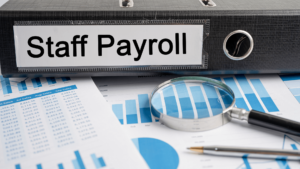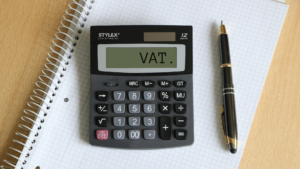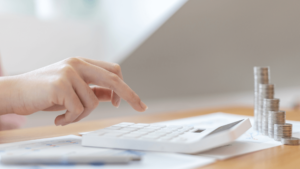What Is Self-Billing?

What is meant by self-Billing?
Self-billing is an arrangement between a supplier and a customer that allows the customer to prepare the supplier’s invoice on their behalf and pay it directly. It’s a great way to help reduce time and hassle in business.
Usually how invocing works is a supplier raises their own sales invoice and sends it to a client to pay. With a self-billing arrangement, the customer will prepare the invoice and forward a copy to the supplier with the payment. This saves time for both parties because they don’t have to deal with each other’s invoicing systems and can focus on their core business activities.
Keeping track of the financial details of your business can feel like a second job in itself. At Joanna Bookkeeping, we aim to help you spend less time on bookkeeping and more time doing what you love. Whether you need help with self-billing, tax return services, or anything in between, we can help!
How do I account for self-Billing?
Sure, self-billing can be a great system, and entering into self-billing arrangements with your suppliers can be very beneficial, but there are certain conditions that must be met:
- A self-billing arrangement must be in place and you need to raise a self-billing invoice, your supplier can't be raising invoices
- Each supplier must have a separate agreement
- Invoices should contain the correct information otherwise they won't be valid for VAT purposes
- Keep records of each agreement from individual suppliers
- Regularly review agreements with your suppliers
You’re both required to sign a formal and legally binding self-billing agreement and include in it:
- Statement from your supplier saying that you can issue invoices instead of them
- Confirmation from your supplier that they will not issue VAT invoices; you can't issue two invoices for the same services or goods
- When the agreement expires
- Statement from your supplier that they will inform you about any changes to their VAT registration
- Details of any third-party if the self-billing is going to be outsourced
What must be included on a self-Billing invoice?
You’ll need to issue self-billed invoices for all transactions with your suppliers during the period of the self-billing agreement. For the invoices to be valid for the VAT purposes, you must include all required details. Those details have to be the same details that go on a full VAT invoice.
Additionally, you must also include the name, address, and VAT registration number of each supplier. And another very important element is a statement saying ‘The VAT shown is your output tax due to HMRC’.
It’s important to note that if a supplier isn’t VAT registered, you can’t add VAT to the self-billing invoice even if you are VAT registered. Remember, that the invoice you are raising is not your sales invoice, it’s your supplier’s sales invoice, so it matters whether they are VAT registered and not whether you are.
The benefits of self-Billing
Self-billing is a way to work with clients while both parties are able to spend more time on their own businesses. There are many benefits to this practice, including:
No late payments – You’ll get paid faster, with less hassle.
Seamless transactions – Self-billing is a great way to make sure your operations run smoothly.
Trust and accountability – Having the freedom to manage your self-billing system.
While the self-billing method may not be for everyone if it sounds like it could be useful for your business then get in touch with us at Joanna Bookkeeping to see how our Oxford-based accountants can help you save time and energy on bookkeeping responsibilities for your business.

Your Accountant in Oxford
Oxford Office
Joanna Bookkeeping
The Wheelhouse Angel Court
First Floor, Angel Court
81 St Clements St
Oxford
OX4 1AW
Connect
joanna@joannabookkeeping.co.uk
01865 591952





